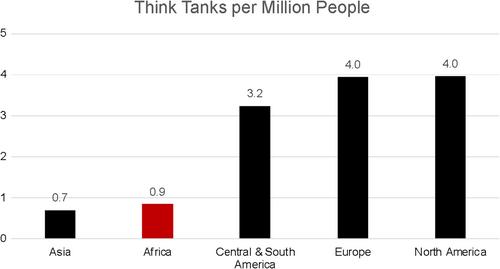African regional economic policy-making: Understanding and catalysing the potentials of think tanks
Abstract
Motivation
As the demand for evidence to inform African regional economic policy-making grows, think tanks are facing a range of challenges that constrain their organizational sustainability. Recent initiatives offering more flexible support to African think tanks underscore the need for a deeper understanding of these critical knowledge actors and how best to enable and strengthen their work.
Purpose
The article asks: how can the potential of African think tanks to support African regional economic policy-making be understood and catalysed? It examines ways in which evidence informs African regional economic policy-making processes and the potential roles for African think tanks; reflects on opportunities and constraints they face in shaping and informing regional policy; and on the extent to which different forms of support help them strengthen their contributions.
Approach and methods
The article draws on grey and published literature, including experiences from the Think Tank Initiative (TTI), a 10-year programme of strengthening institutional research capacity for over 40 think tanks in Africa, Asia, and Latin America.
Findings
Demand for evidence by regional economic policy actors is increasing, alongside a growing appreciation of African think tanks as evidence providers, intermediaries, and key knowledge interlocutors. While long-term, flexible financial support to think tanks remains rare, funding that strengthens institutional resources, including infrastructure and research management, seems crucial in supporting long-term, sustained programmes of Africa-led research on priorities identified in the continent.
Policy implications
African think tanks play critical roles in generating evidence for use in national and regional policy-making, by conducting rigorous and impartial research through partnerships characterized by integrity, trust, respect, and equity. They help counter forces that are ill-informed or seek to curtail or derail democratic public policy-making, adoption, and implementation. By facilitating engagement with a wide range of stakeholders around policy issues, they greatly improve the likelihood of evidence uptake and use.


 求助内容:
求助内容: 应助结果提醒方式:
应助结果提醒方式:


